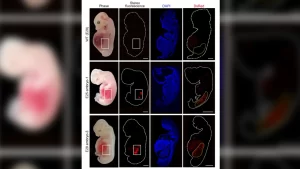Health advocates from both the public and private sectors call for improved implementation of the Nutrition Care Process (NCP) in hospitals across the Philippines.
The NCP, a standardised approach used by registered nutritionist-dietitians (RNDs), involves thorough evaluation, diagnosis, treatment, and monitoring of patients’ nutritional needs. This process is crucial for accelerating patient recovery and reducing hospital stays, underscoring that “food is medicine”.
Fundamental Human Right
Dr. Jose Rodolfo Dimaano Jr, Co-Lead of the Abbott Center for Malnutrition Solutions, emphasised that access to proper nutrition is a basic human right. He advocated for the NCP’s comprehensive implementation across all stages of patient care, including preventive measures in the community, aggressive nutritional interventions during hospitalisation, and continuous post-discharge monitoring.
Importance of NCP
Nutrition plays a crucial role in hospitalised patients for several reasons:
Supporting Healing and Recovery
Adequate nutrition provides the essential nutrients for cellular repair and regeneration, supporting the body’s healing processes. Patients recovering from surgery, injury, or illness require increased energy and nutrients to rebuild tissues and regain strength.
Immune Function
Proper nutrition is vital for a robust immune system. Hospitalised patients are often vulnerable to infections due to underlying conditions or medical procedures. Nutrient-rich diets help bolster immune function, reducing the risk of complications and expediting recovery.
Maintaining Muscle Mass
Prolonged illness or immobility can lead to muscle wasting and weakness. Protein intake is particularly crucial during hospitalization to preserve muscle mass and prevent further deterioration. Adequate protein intake supports tissue repair and maintains essential bodily functions.
Preventing Malnutrition
Hospitalisation can disrupt normal eating patterns and appetite, increasing the risk of malnutrition. Malnourished patients are more susceptible to infections, delayed wound healing, and prolonged hospital stays. Nutritional support aims to prevent and address malnutrition, optimising patient outcomes and reducing healthcare costs.
Managing Chronic Conditions
Many hospitalised patients have pre-existing chronic conditions such as diabetes, cardiovascular disease, or gastrointestinal disorders. Proper nutrition plays a key role in managing these conditions, controlling blood sugar levels, managing blood pressure, and supporting digestive health.
Enhancing Medication Efficacy
Some medications require specific nutritional considerations. For instance, certain antibiotics may be less effective if taken on an empty stomach, while others may interact with certain nutrients. Healthcare providers must ensure that patients receive appropriate nutrition to maximise the efficacy and safety of prescribed medications.
Improving Overall Well-being
Hospitalisation can be a stressful physical and emotional experience. Adequate nutrition contributes to overall well-being by providing comfort, promoting a sense of control, and improving mood and energy levels. Patients who feel nourished are better equipped to cope with the challenges of hospitalisation and are more likely to participate actively in their recovery.
Challenges and Barriers
Despite the NCP’s recognised importance, its implementation faces several barriers. These include inadequate staffing, limited experience among healthcare providers, and conflicts with existing hospital nutrition care systems. Advocates are pushing for legislation to support the universal implementation of the NCP, addressing these challenges and ensuring consistent application across healthcare facilities.
Economic and Health Impacts
Improving nutritional care is vital for patient health and the country’s economic security. Undernutrition adversely affects children’s physical health and cognitive development, limiting their ability to contribute effectively to long-term sustainable growth. Ensuring proper nutrition care can mitigate these effects, enhancing the overall health and productivity of the population.
Recommendations and Next Steps
To overcome the existing barriers, recommendations include adopting standardised nutrition screening tools, mandatory training for all professionals involved in nutrition care, increased budget allocations, and improved inter-professional communication. Integration of the NCP into the Universal Health Care law, regular compliance audits, and policy incentives for NCP implementation are also suggested. Enhanced stakeholder engagement is crucial for the successful implementation of these recommendations.
Conclusion
The push for enhanced nutrition care in hospitals is gaining momentum, with advocates highlighting the critical role of the NCP in patient care and recovery. Addressing the implementation challenges through legislative support and improved resources will be essential for realising the full potential of nutrition care in the healthcare system.
Have a pressing question for a doctor? Medical Channel Asia has launched a community forum page where you can get questions answered by a medical specialist. Visit the community forum here.












